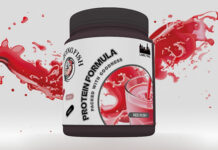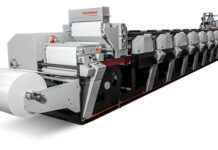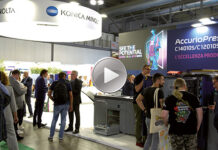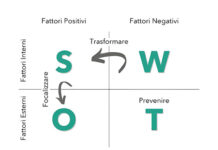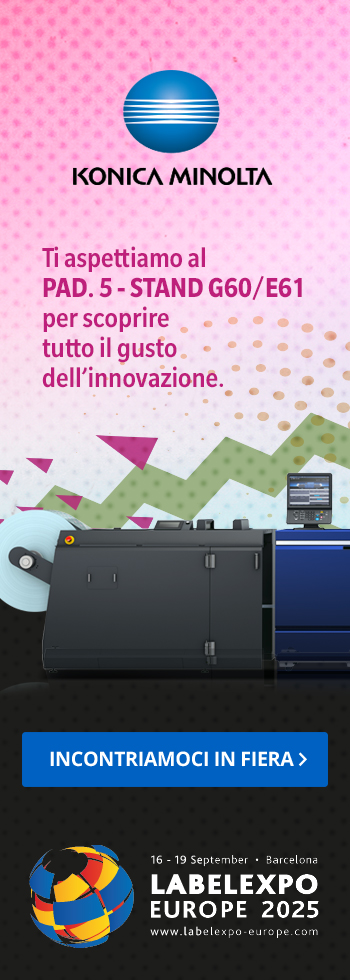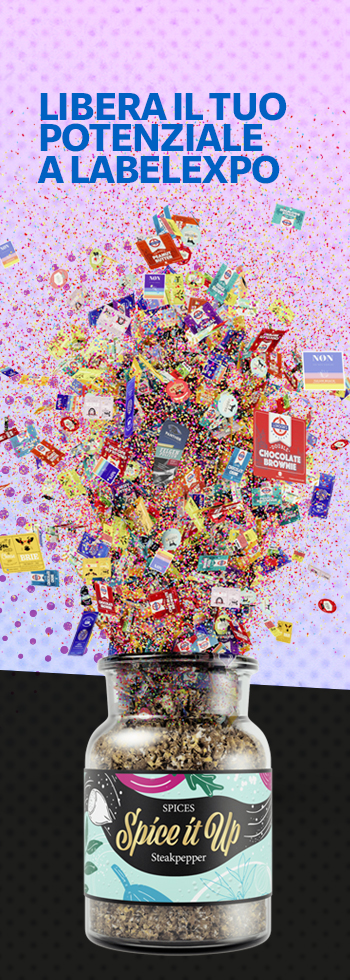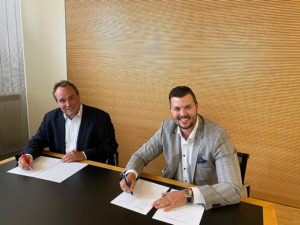
As the new and preferred sales partner for Varcotec’s innovative Lock 3 technology, Siegwerk is expanding its range of packaging inks and varnishes with a unique antimicrobial dispersion varnish suitable for a wide range of applications and packaging types.
Siegwerk and Varcotec, a specialist for technically sophisticated overprint varnishes made for the printing industry, have entered into a distribution partnership for Varcotec’s Lock 3 antimicrobial coating technology in the EMEA region (Europe, Middle East and Africa). This innovative dispersion varnish is the first of its kind, and was developed in cooperation with a spin-off company affiliated with the University of Regensburg, Germany. The antimicrobial effectiveness of this product has already been confirmed by several independent testing institutions.
“With the integration of Varcotec’s innovative product technology, we are adding a unique solution for various applications and packaging industries to our portfolio, thereby once again reinforcing the holistic nature of our offers for the packaging market,” said Hanns Martin Kaiser, Vice President Paper & Board EMEA and Liquid Food Packaging at Siegwerk. Even if printed surfaces on packaging generally do not constitute a hazard, consumers continue to be exposed to potentially contaminated surfaces. As different germs (e.g. viruses, bacteria, fungi) exhibit varying survival times, the Lock 3 technology makes a valuable contribution to avoid risks of transmitting bacterial and viral infections when products’ printed surfaces (outer packaging, partitions, exercise books, etc.) are handled by multiple people in short time. Lock 3 antimicrobial solutions help to provide extra security in a multitude of applications by interrupting chains of infection early on.
“With Lock 3, Varcotec has launched the first antimicrobial dispersion varnish based on the principle of photodynamics in order to reliably reduce the germ loads,” added Paul Pain, Global Head of Water-based Technology at Siegwerk. “We are pleased to be able to include this unique product innovation in our portfolio, allowing us to offer this to our customers as partner of Varcotec.” According to scientific data, germs can survive on surfaces from a few hours up to several months. “Until now, it has not been possible to apply a reliable coating onto absorbent substances, such as paper and cardboard, which would continuously and permanently destroy those germs,” explains Joachim Frings, from Sales and Development at Varcotec. “With Lock 3 we have succeeded in developing a varnish system which can demonstrably reduce the germ load on a wide range of printed products, already at ambient lighting conditions.”
The water-based overprint varnish Lock 3 allows for permanent, independent disinfection of the printed surfaces under ambient room lighting or in open daylight. Lock 3 contains a specially patented substance, taking advantage of the principle of photodynamics: the photocatalyst is activated by visible light and transfers the energy thus absorbing the surrounding oxygen. This process creates so-called singlet oxygen, efficiently killing germs by oxidizing their shells.
For more than 20 years, singlet oxygen has been used routinely in medicine for the treatment of tumors and degenerative diseases. Antimicrobial use of singlet oxygen was confirmed during this time period. No resistance develops against singlet oxygen, in contrast to what is usually observed with antibiotics and conventional biocides. The active oxygen is gaseous: It can easily reach and kill microorganisms on dry and damp surfaces. With a range of about 1 mm it reaches far enough to destroy surface microorganisms, but remains constrained from arbitrary release into the environment.
The effectiveness of this varnish was already validated by several independent testing institutions. Tests have shown that Lock 3 varnishes can kill both bacteria (according to ISO 22196 (mod.) for paper and cardboard) and infectious viral particulates (based on ISO 21702 (mod.)) by more than 99%. Additional tests against other virus strains, including three members of the Coronavirus family, are currently in the testing phase.
Lock 3 can already be applied to paper and cardboard by means of all commonly used printing machinery and coating equipment. The first pilot applications on plastic films are already underway, an expansion of the application range is under development and subjected to the required testing. This varnish is currently the only fully effective antimicrobial technology on the market which functions independent of moisture and temperature conditions and remains effective on dry surfaces. The photodynamic effect is temporarily suspended in darkness, but reactivated immediately upon renewed exposure to light. This varnish remains effective for up to three years. In contrast, other comparable technologies, such as coatings containing silver and copper, require the presence of moisture or even UV radiation to obtain a sufficient effectiveness for disinfection. Lock 3 dispersion varnishes are free from heavy metals, odorless and without impact on the recycling process of respective products or packaging.




